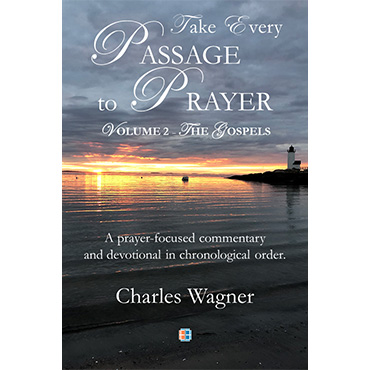The Gramazin Blog

Jesus is Opposed in Samaria
Take Every Passage to Prayer - Volume 2, The Gospels
Thursday August 15, 2024
Luke 9:52-56
Father, I don't want to be self-righteous. I don't want to have a "holier-than-thou" heart. Please forgive me for anything within me that thinks that way. I have sinned the same as anyone I could label as wicked or evil. Father, give me a heart that is slow to anger, compassionate, gracious, forgiving, and rich in love. I want those traits to apply to anyone in my life who I think deserves the wrath of God. Help me to love them because Jesus loves them. Help me to share the love of Christ with them by what I say and what I do. Amen.
Father, there are so many self-righteous, holier-than-thou, people who truly believe they are good enough to stand fearless before You, ready to receive their reward or “pats on the back” by the hand of God for their “at least I am not like that bad person” lives. The light is shined on their sanctimony when they make comments to posts on the Internet.
“That person is going to burn in hell.”
“I would love to be a fly on the wall when that person has to answer to God.”
In this incident in Jesus’ life, we experience a similar arrogance displayed by the disciples. It drips from the verses of Luke 9 like an ice cream cone under attack by the rays of the sun on a hot summer day.
Father, Jesus had a plan. He doesn’t do “random.” Every action that He took in His ministry was with purpose. Jesus didn’t just happen to stumble upon a village. He visited a village because He intended to visit the village.
With this in mind, we read that Jesus sent messengers ahead to a Samaritan village on His itinerary so that they could make arrangements. However, the people sent word back that Jesus was not welcome in the village and that He should not come. They feared that Jesus, on His way to Jerusalem, would somehow disclose the weaknesses or vulnerabilities of the village to the Jews, their bitter enemies. James and John were furious. They literally asked Jesus to send down fire from heaven to destroy the village.
What do we learn here about the character of pre-Pentecost (Acts 2) James and John?
- They are self-righteous.
- They are judgmental.
- They lack compassion for others.
- They believe Jesus has the authority in heaven and the desire on earth to command destruction.
- They still don’t “get” Jesus, grossly misunderstanding the character of His heart.
The text tells us that Jesus rebuked His disciples, surgically piercing their hearts and revealing their godless attitudes.
Did Jesus not know this village would reject Him? Of course He knew they would. This is precisely why Jesus sent someone ahead to make arrangements for their visit. Jesus wanted to provoke the leaders of that village to reject Him. Why? So that His disciples would reveal their true colors in response to that rejection. Why? So that His disciples will learn an important lesson about Your character and their hearts.
What is Your character like, Father? You are:
|
Father, Jesus reflected Your character. Therefore, He would respond to the village’s rejection by being slow to anger, abounding in love, forgiving of sin, showing compassion and grace, and giving the village a richness of His love. Jesus bought the villagers more time to hear and receive the gospel, perhaps when He would send out His disciples to share the gospel in Samaria. Instead of seeking spontaneous revenge for hurt feelings, Jesus calmly and confidently moved on to the next stop along His ministry journey. The text tells us that Jesus and His disciples went to another village.
However, there is a catastrophic outcome for this village that is apparent with a little meditation on the text. Jesus did not visit the village. He did not build relationships with any of the citizens. Jesus did not heal anybody of what ailed them. Jesus did not share the gospel in this community. Jesus did not teach fundamentals of a fulfilling life, such as loving your neighbor and resolving conflict. By telling Jesus to stay away, the villagers renewed their contract with trouble and adversity.
Father, it is frightening to think that hell is a place of fire. However, it is just as frightening to think that hell is a place where Jesus is not present. He is absent from those who dwell there – not just for today and for tomorrow, but also for eternity. Amen.
A truly humble man or woman knows that they deserve the full wrath of God for their sinful and rebellious life. How can they call upon the wrath of God on someone else when they are just as guilty? Matthew 7:2 says that we will be judged by the same standard we judge others. If we call upon the wrath of God to crush someone else, we are in essence inviting that same wrath upon ourselves.







